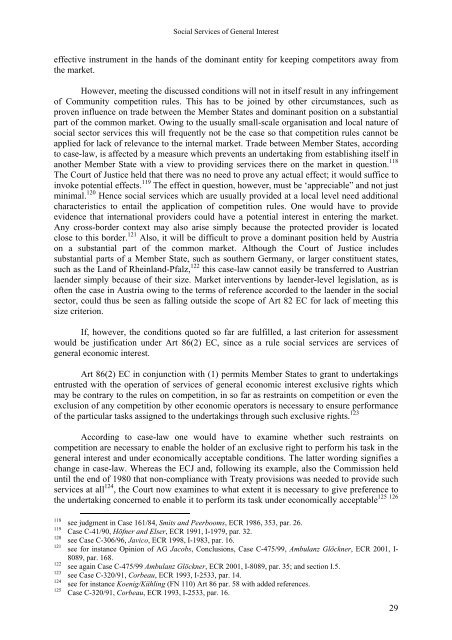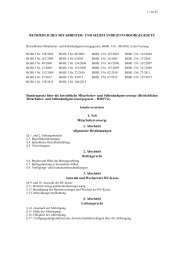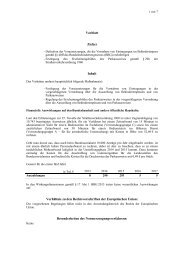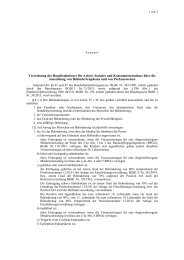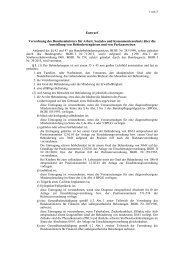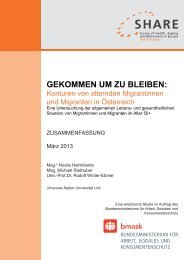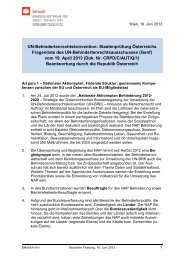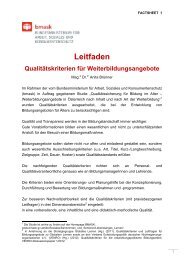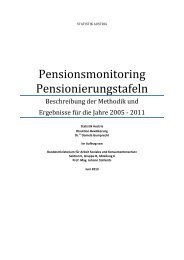Social Services of General Interest (SSGI)
Social Services of General Interest (SSGI)
Social Services of General Interest (SSGI)
You also want an ePaper? Increase the reach of your titles
YUMPU automatically turns print PDFs into web optimized ePapers that Google loves.
<strong>Social</strong> <strong>Services</strong> <strong>of</strong> <strong>General</strong> <strong>Interest</strong><br />
effective instrument in the hands <strong>of</strong> the dominant entity for keeping competitors away from<br />
the market.<br />
However, meeting the discussed conditions will not in itself result in any infringement<br />
<strong>of</strong> Community competition rules. This has to be joined by other circumstances, such as<br />
proven influence on trade between the Member States and dominant position on a substantial<br />
part <strong>of</strong> the common market. Owing to the usually small-scale organisation and local nature <strong>of</strong><br />
social sector services this will frequently not be the case so that competition rules cannot be<br />
applied for lack <strong>of</strong> relevance to the internal market. Trade between Member States, according<br />
to case-law, is affected by a measure which prevents an undertaking from establishing itself in<br />
another Member State with a view to providing services there on the market in question. 118<br />
The Court <strong>of</strong> Justice held that there was no need to prove any actual effect; it would suffice to<br />
invoke potential effects. 119 The effect in question, however, must be ‘appreciable” and not just<br />
minimal. 120 Hence social services which are usually provided at a local level need additional<br />
characteristics to entail the application <strong>of</strong> competition rules. One would have to provide<br />
evidence that international providers could have a potential interest in entering the market.<br />
Any cross-border context may also arise simply because the protected provider is located<br />
close to this border. 121 Also, it will be difficult to prove a dominant position held by Austria<br />
on a substantial part <strong>of</strong> the common market. Although the Court <strong>of</strong> Justice includes<br />
substantial parts <strong>of</strong> a Member State, such as southern Germany, or larger constituent states,<br />
such as the Land <strong>of</strong> Rheinland-Pfalz, 122 this case-law cannot easily be transferred to Austrian<br />
laender simply because <strong>of</strong> their size. Market interventions by laender-level legislation, as is<br />
<strong>of</strong>ten the case in Austria owing to the terms <strong>of</strong> reference accorded to the laender in the social<br />
sector, could thus be seen as falling outside the scope <strong>of</strong> Art 82 EC for lack <strong>of</strong> meeting this<br />
size criterion.<br />
If, however, the conditions quoted so far are fulfilled, a last criterion for assessment<br />
would be justification under Art 86(2) EC, since as a rule social services are services <strong>of</strong><br />
general economic interest.<br />
Art 86(2) EC in conjunction with (1) permits Member States to grant to undertakings<br />
entrusted with the operation <strong>of</strong> services <strong>of</strong> general economic interest exclusive rights which<br />
may be contrary to the rules on competition, in so far as restraints on competition or even the<br />
exclusion <strong>of</strong> any competition by other economic operators is necessary to ensure performance<br />
<strong>of</strong> the particular tasks assigned to the undertakings through such exclusive rights. 123<br />
According to case-law one would have to examine whether such restraints on<br />
competition are necessary to enable the holder <strong>of</strong> an exclusive right to perform his task in the<br />
general interest and under economically acceptable conditions. The latter wording signifies a<br />
change in case-law. Whereas the ECJ and, following its example, also the Commission held<br />
until the end <strong>of</strong> 1980 that non-compliance with Treaty provisions was needed to provide such<br />
services at all 124 , the Court now examines to what extent it is necessary to give preference to<br />
125 126<br />
the undertaking concerned to enable it to perform its task under economically acceptable<br />
118<br />
see judgment in Case 161/84, Smits and Peerbooms, ECR 1986, 353, par. 26.<br />
119<br />
Case C-41/90, Höfner and Elser, ECR 1991, I-1979, par. 32.<br />
120<br />
see Case C-306/96, Javico, ECR 1998, I-1983, par. 16.<br />
121<br />
see for instance Opinion <strong>of</strong> AG Jacobs, Conclusions, Case C-475/99, Ambulanz Glöckner, ECR 2001, I-<br />
8089, par. 168.<br />
122<br />
see again Case C-475/99 Ambulanz Glöckner, ECR 2001, I-8089, par. 35; and section I.5.<br />
123<br />
see Case C-320/91, Corbeau, ECR 1993, I-2533, par. 14.<br />
124<br />
see for instance Koenig/Kühling (FN 110) Art 86 par. 58 with added references.<br />
125<br />
Case C-320/91, Corbeau, ECR 1993, I-2533, par. 16.<br />
29


